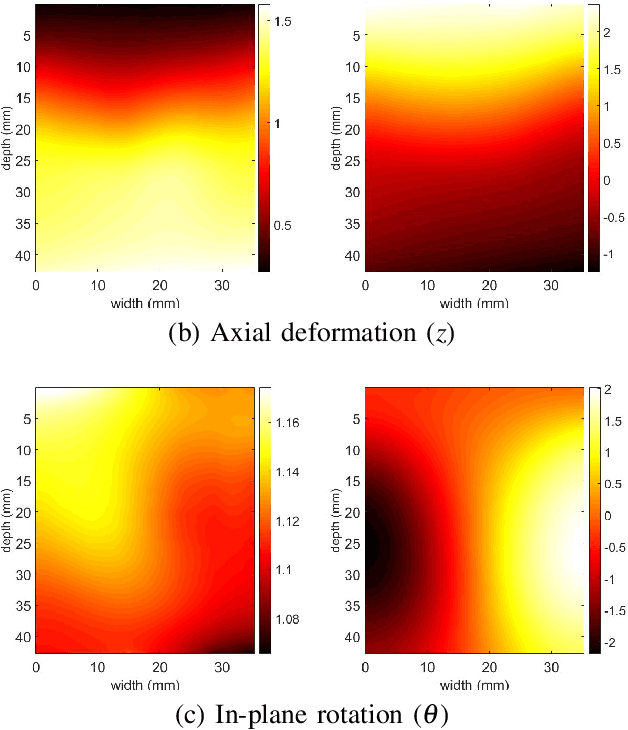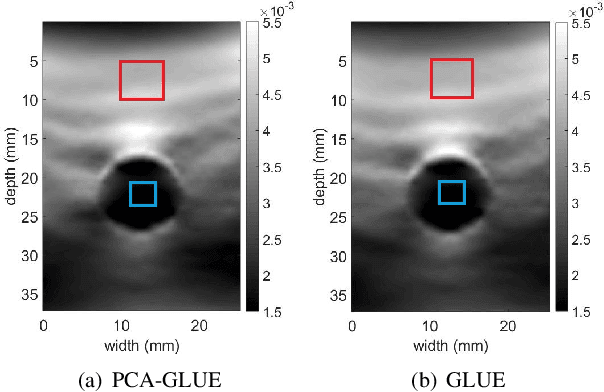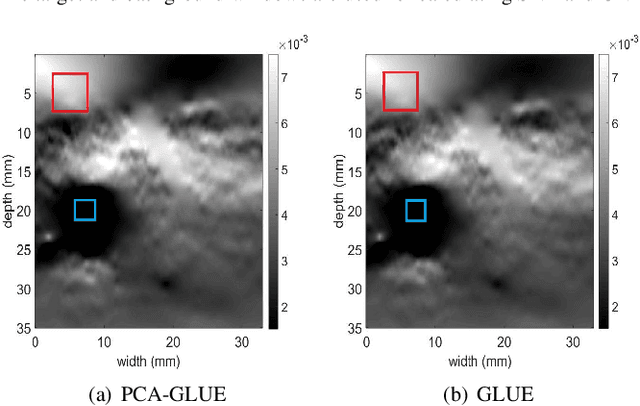Fast Approximate Time-Delay Estimation in Ultrasound Elastography Using Principal Component Analysis
Paper and Code
Nov 13, 2019



Time delay estimation (TDE) is a critical and challenging step in all ultrasound elastography methods. A growing number of TDE techniques require an approximate but robust and fast method to initialize solving for TDE. Herein, we present a fast method for calculating an approximate TDE between two radio frequency (RF) frames of ultrasound. Although this approximate TDE can be useful for several algorithms, we focus on GLobal Ultrasound Elastography (GLUE), which currently relies on Dynamic Programming (DP) to provide this approximate TDE. We exploit Principal Component Analysis (PCA) to find the general modes of deformation in quasi-static elastography, and therefore call our method PCA-GLUE. PCA-GLUE is a data-driven approach that learns a set of TDE principal components from a training database in real experiments. In the test phase, TDE is approximated as a weighted sum of these principal components. Our algorithm robustly estimates the weights from sparse feature matches, then passes the resulting displacement field to GLUE as initial estimates to perform a more accurate displacement estimation. PCA-GLUE is more than ten times faster than DP in estimation of the initial displacement field and yields similar results.
 Add to Chrome
Add to Chrome Add to Firefox
Add to Firefox Add to Edge
Add to Edge